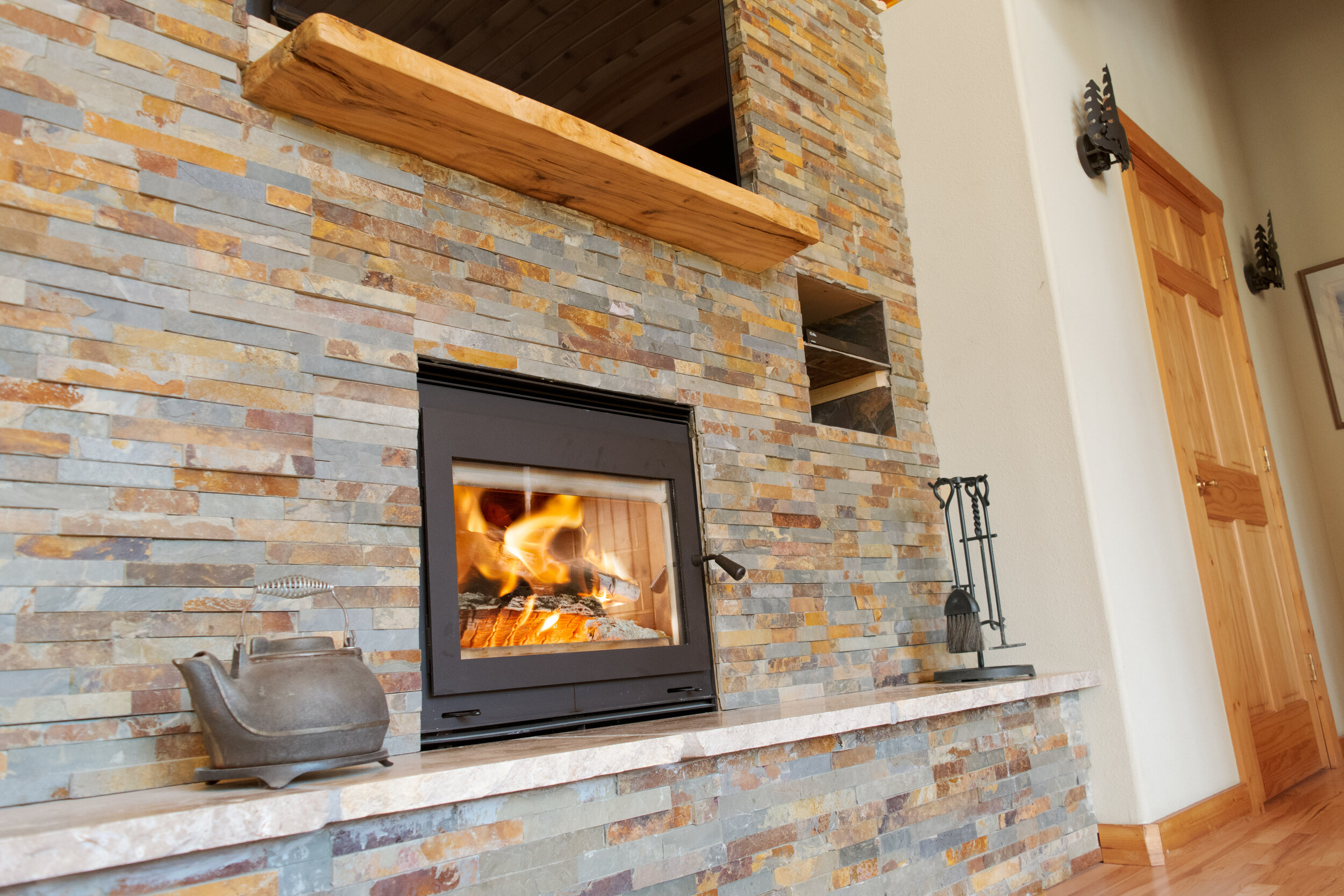All winter long, hundreds of thousands of American homes heat safely with wood stoves, fireplaces and wood stove inserts. Burning wood is not only effective, it’s efficient and comforting. Yet, every year, thousands of other homes suffer serious damage each as a result of fires directly attributed to those same wood-burning appliances and the chimney systems connected to them. What are the differences between these homes and the homes that heat with wood safely, year after year?
We installed this modern, efficient RSF Focus 320 wood burning fireplace in a home in Evergreen, CO.
Regular Maintenance Means Safer Wood Burning
Proper maintenance and correct operation are the primary differences between safe wood burning and unsafe wood burning. The best source of proper care for your fireplace or wood stove is a chimney sweep certified by the Chimney Safety Institute of America. The chimney sweep's primary goal is to aid homeowners in preventing fires related to the operation of fireplaces, wood stoves, pellet stoves and their associated chimneys. The hearth industry has come an awful long way since the days of a sooty-faced old codger jamming a brush into a flue and grinning while soot gets all over your carpet. Today's chimney professionals inspect, clean and repair a vast array of heating systems; as well as providing a reliable source of information to homeowners about their safe and efficient operation - and they do it with advanced equipment and training that prevent your home from becoming a mess!
Our Certified Chimney Sweeps know how to take care of your fireplace & chimney needs.
Almost everybody knows that creosote is the fuel that burns during a chimney fire. But no so many people understand that creosote is the direct result of combustion by-products (smoke) condensing in the flue before getting completely out of the chimney. Creosote forms inside the chimney because of limited air supply to the fire and the burning of unseasoned wood. In both cases the result is chimney temperatures that are not hot enough to draft the gases completely out of the chimney - and condensation occurs inside the flue.
Proper Operation Keeps Your Family Safe
Unfortunately, many people learned that restricting the airflow into a fireplace or wood stove is a good way to make the wood burn longer. All this really does is reduce the efficiency of the appliance—you actually get less heat per pound of wood. Also, the limited air flowing into the firebox will increase the time that the smoke is in the flue—a key factor forming creosote! You should never, ever burn unseasoned wood. It requires too much energy to burn off the water in it and the result is smoke that is too cool to properly escape the chimney—more creosote! You should also never burn plastics, painted wood, plywood, or pressure treated wood—the first three have contents that won’t fully combust and the latter contains arsenic!
Fuel Choice Makes a Difference in Wood Burning
In our region of the country, the value of burning more abundant softwoods (such as pine and aspen) versus longer burning, but more expensive, hardwoods is an ongoing debate. But, all knowledgeable chimney professionals agree that moisture content is a more important consideration than what kind of tree the wood came from - burning dry wood is a critical safety consideration. The keys to a safe chimney are: operating the appliance in accordance with the manufacturer's instructions, burning the fire at sufficiently high temperatures to reduce creosote buildup through proper fuel combustion, and regular maintenance (sweeping) of the exhaust system. If you follow these simple guidelines, you will be much less likely to have safety or performance problems with your heating appliance.
Contact Us For Fireplace Sales, Service, & Installation
For more information about heating with wood, gas or pellet products or for service on all makes and models, call us today at Mountain Hearth & Patio - (303) 679-1601, email us at Office@MtnHP.com or drop by our showroom at 7001 Highway 73 in Marshdale.





